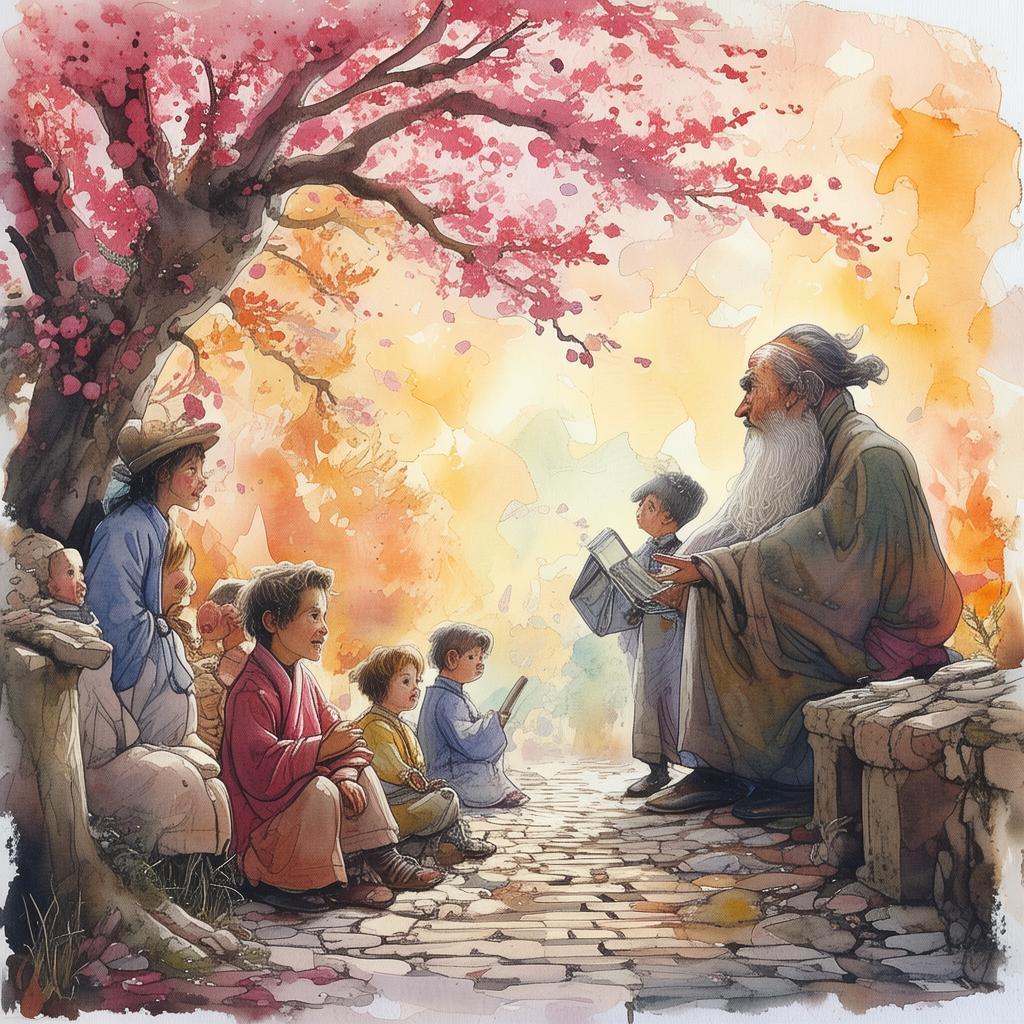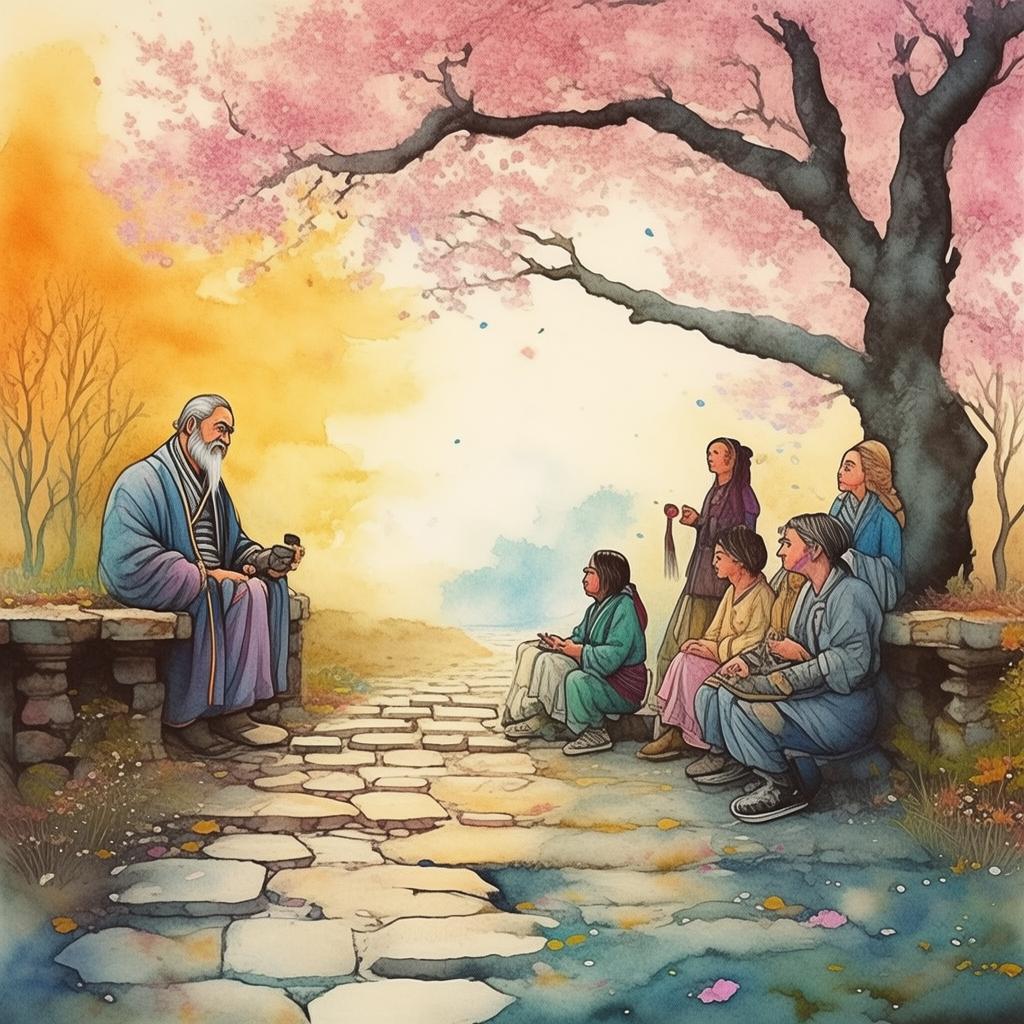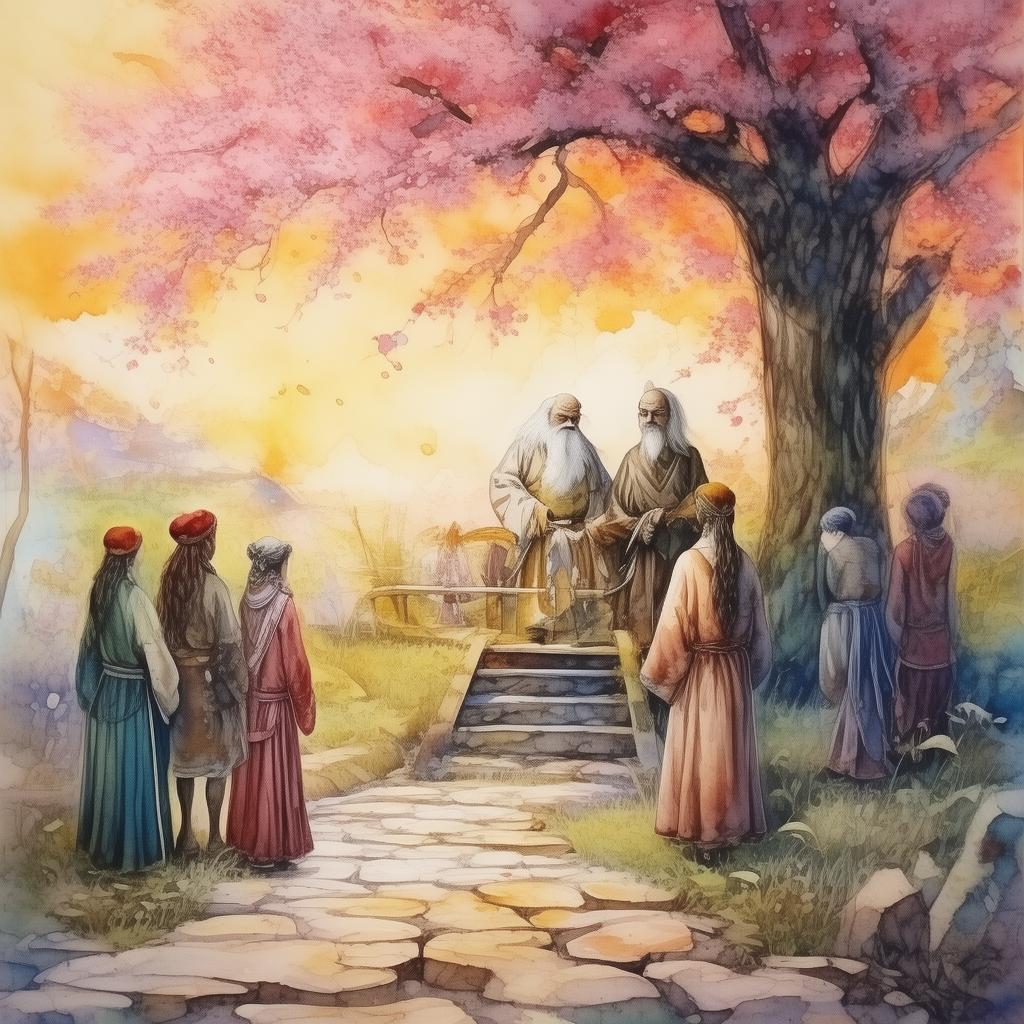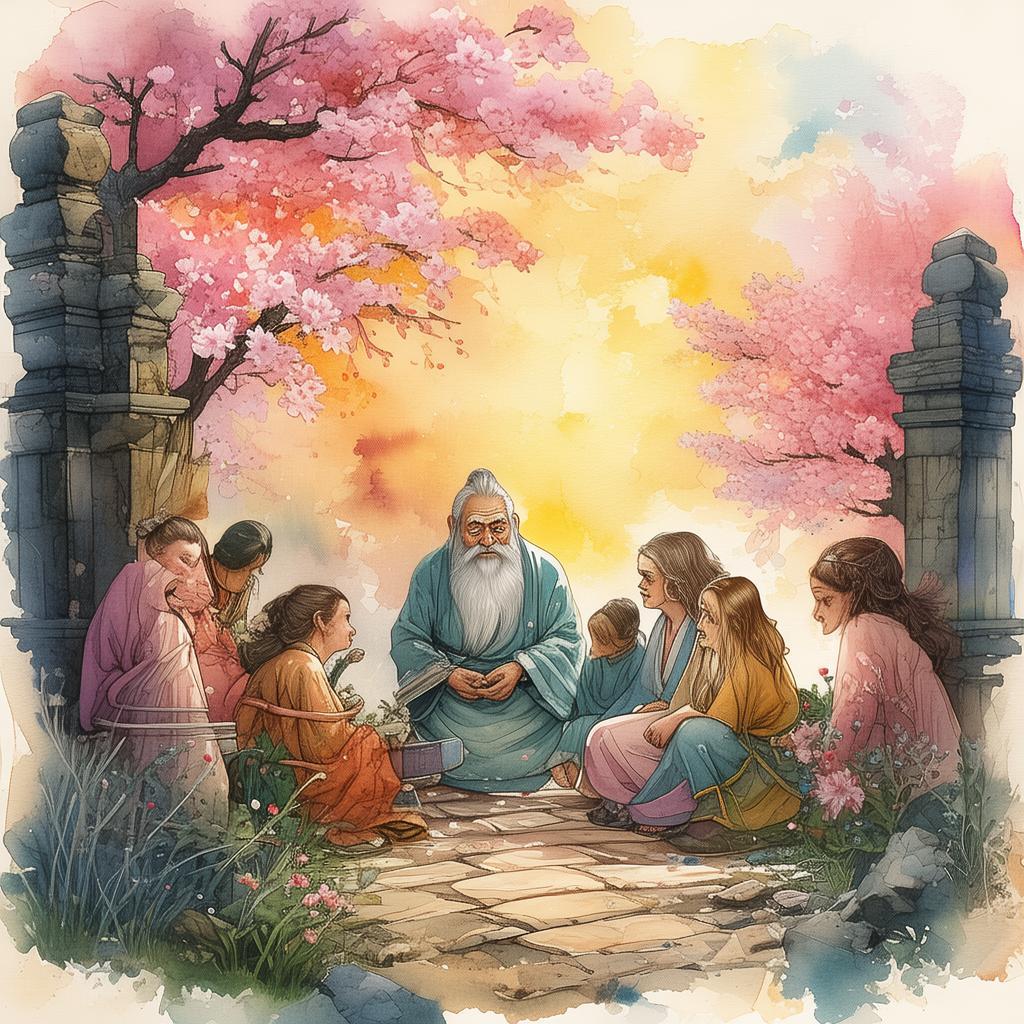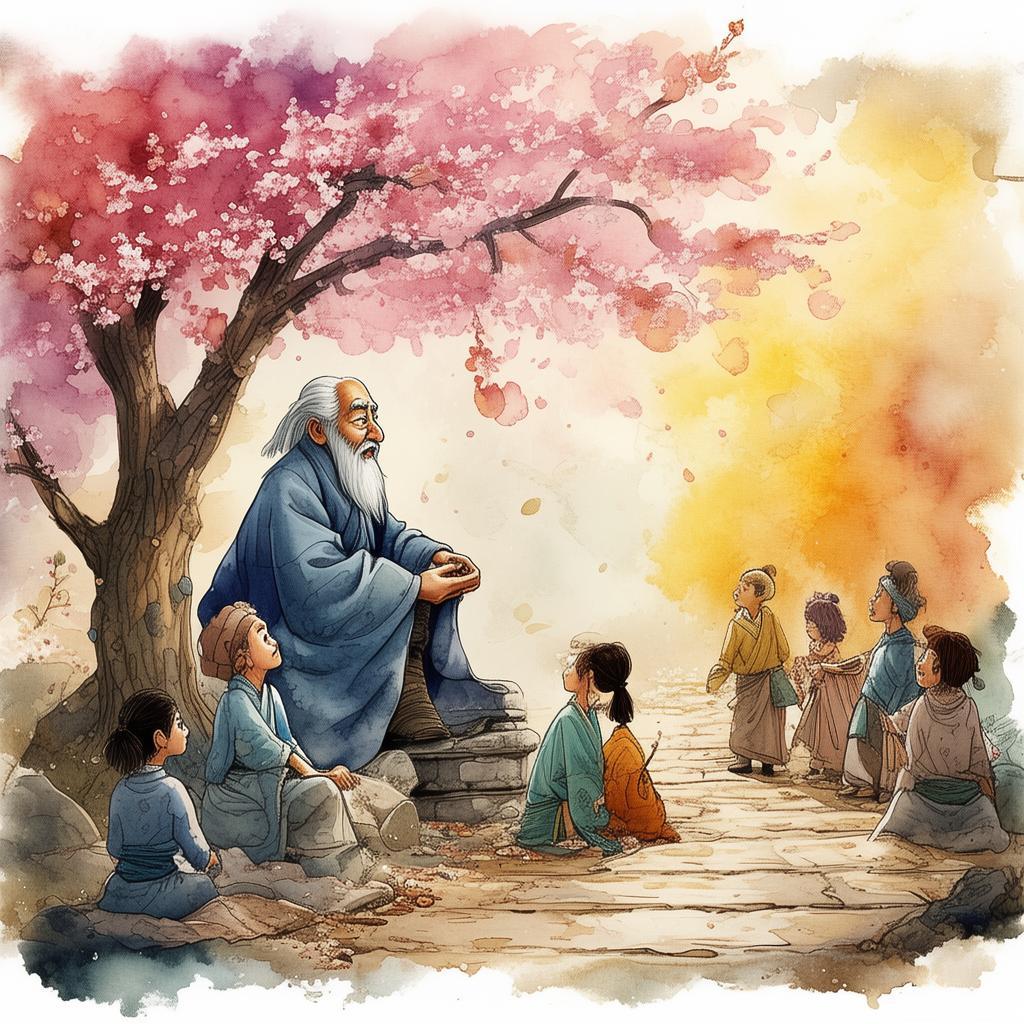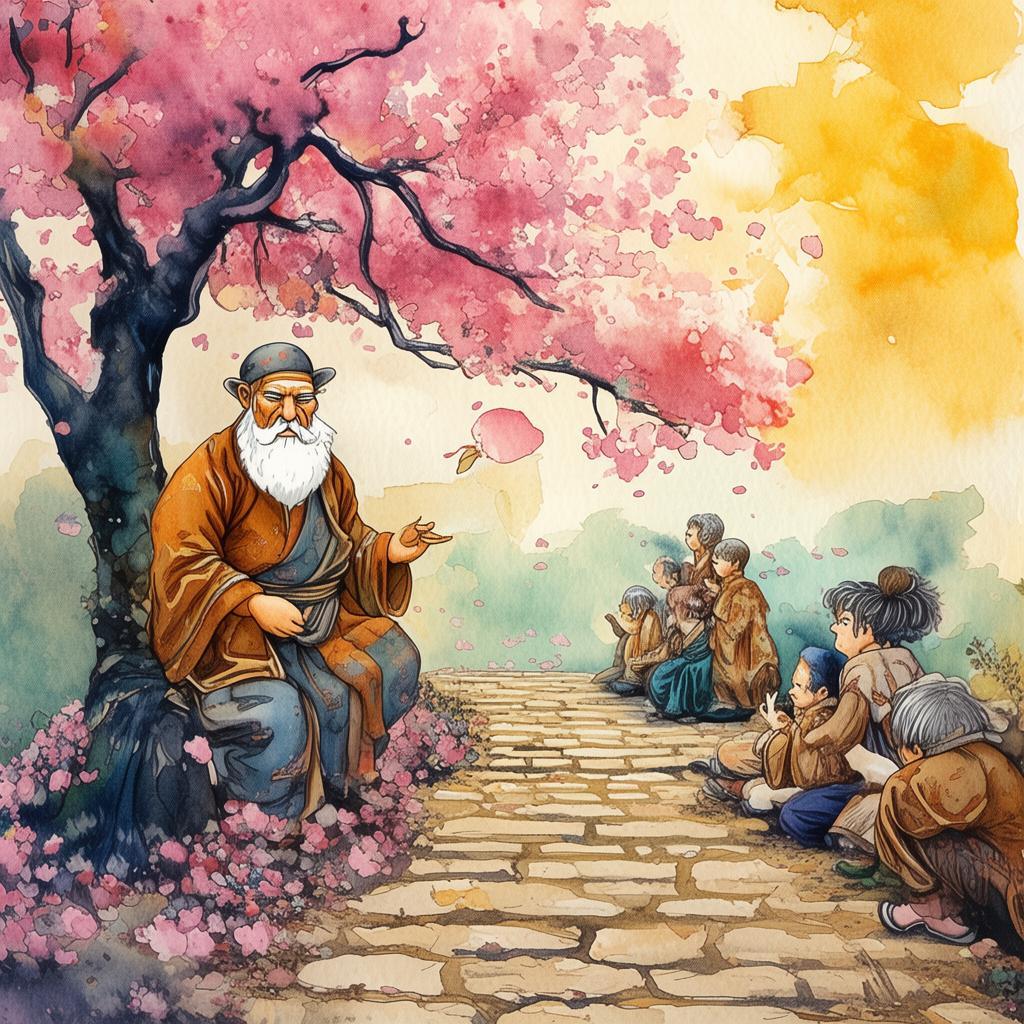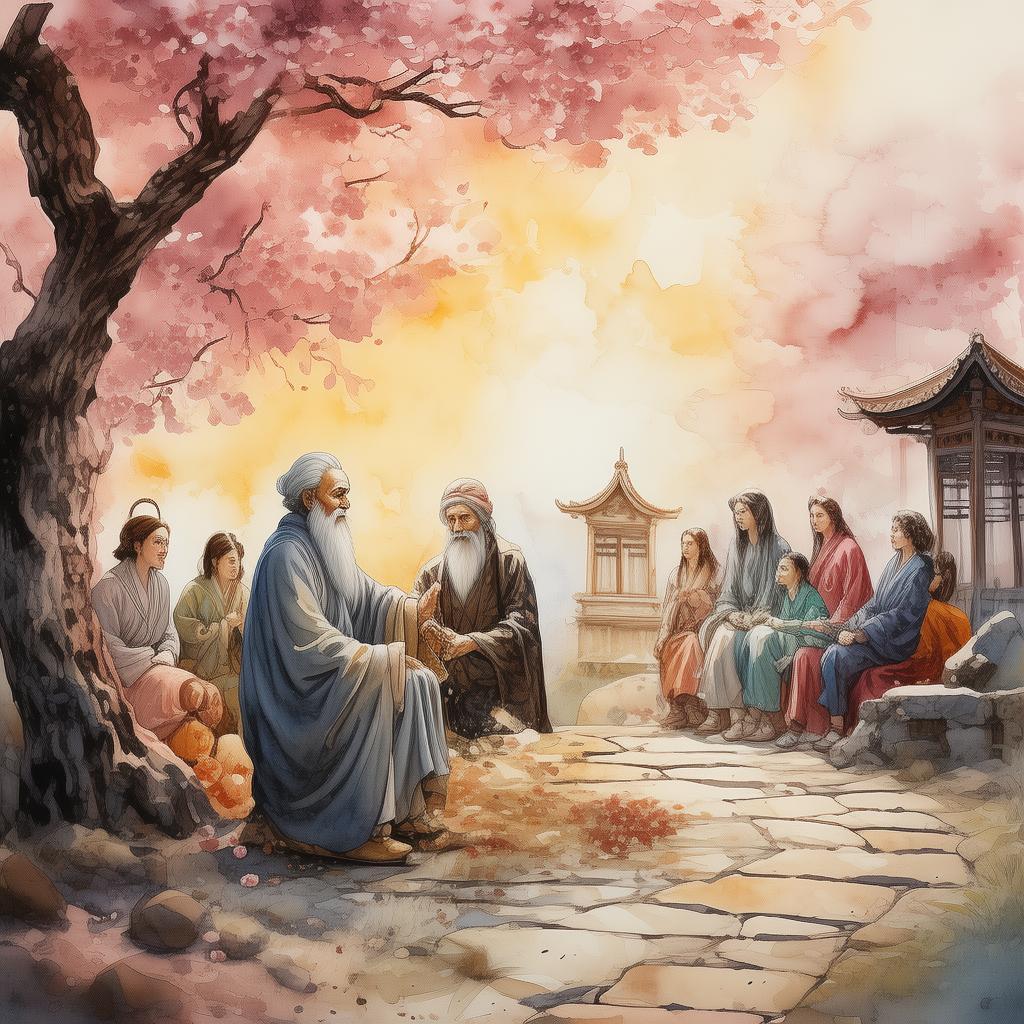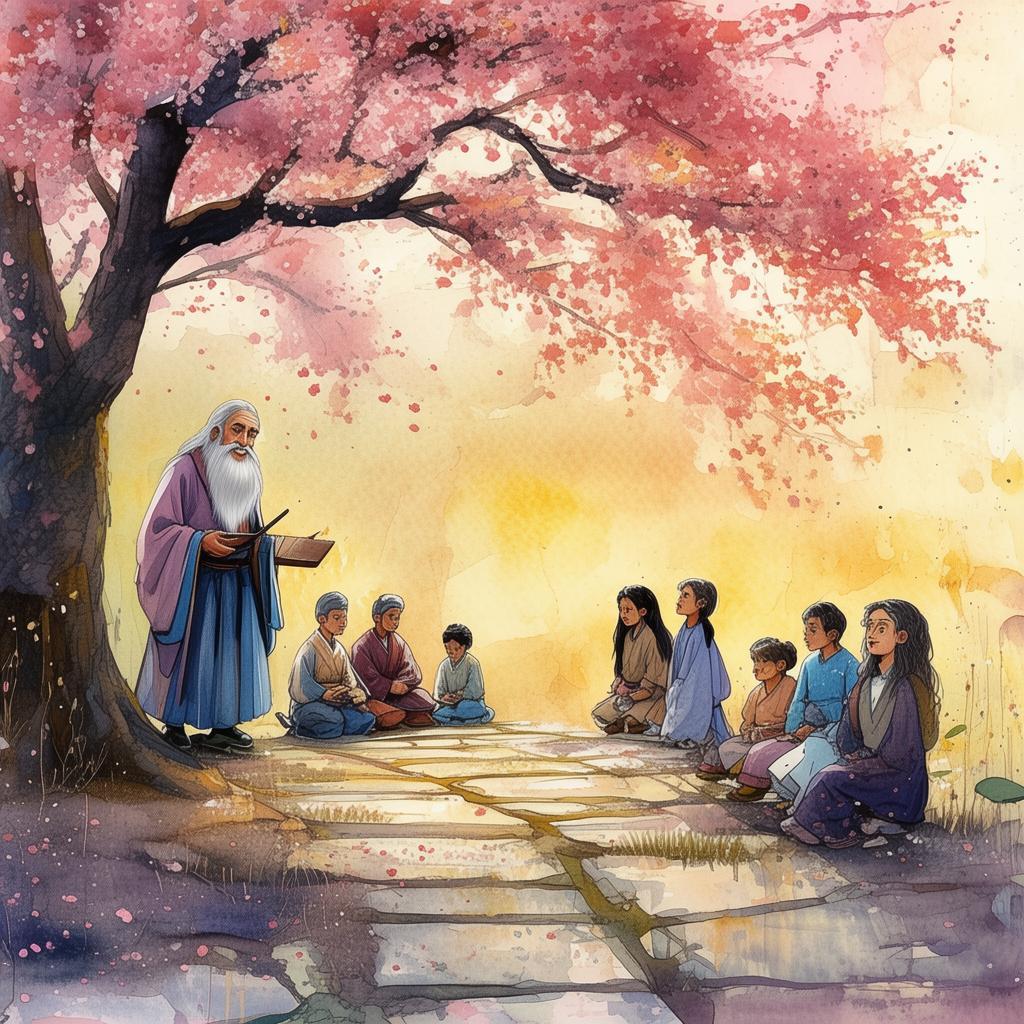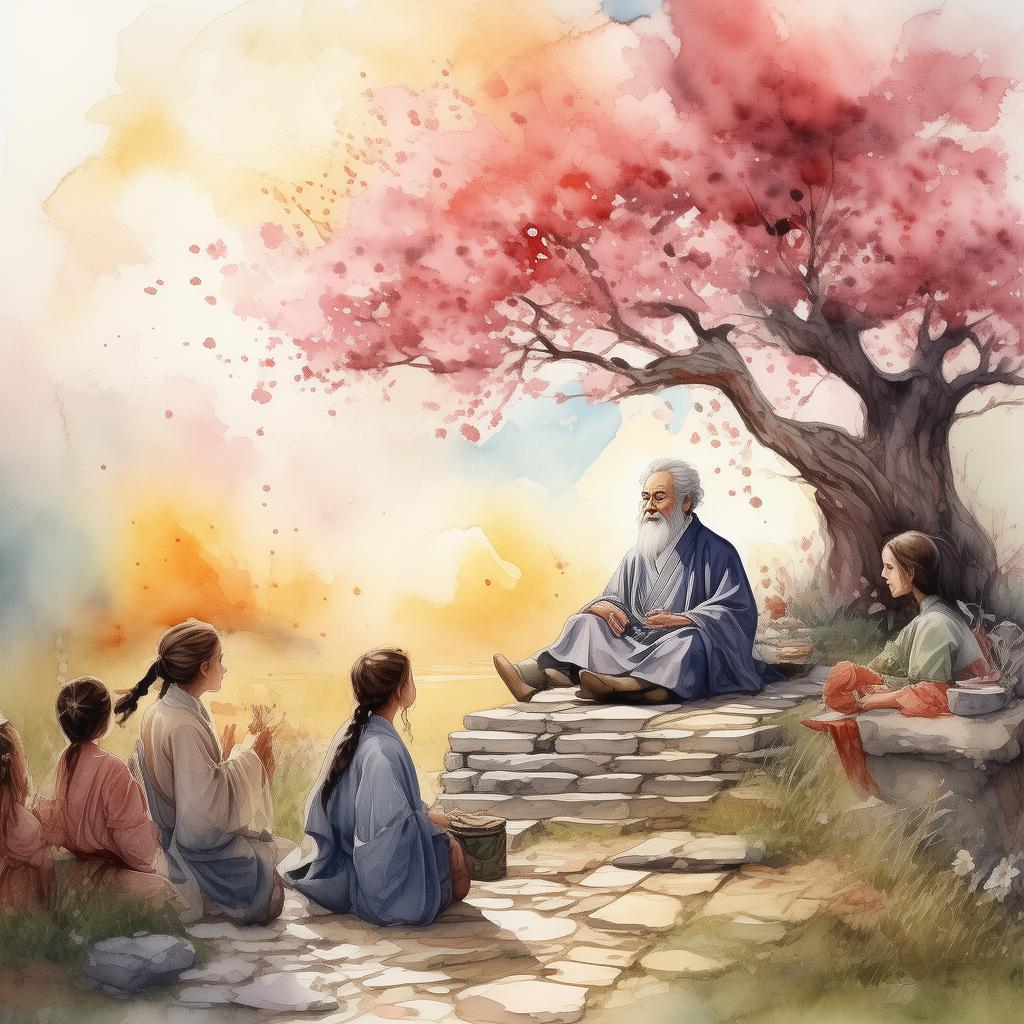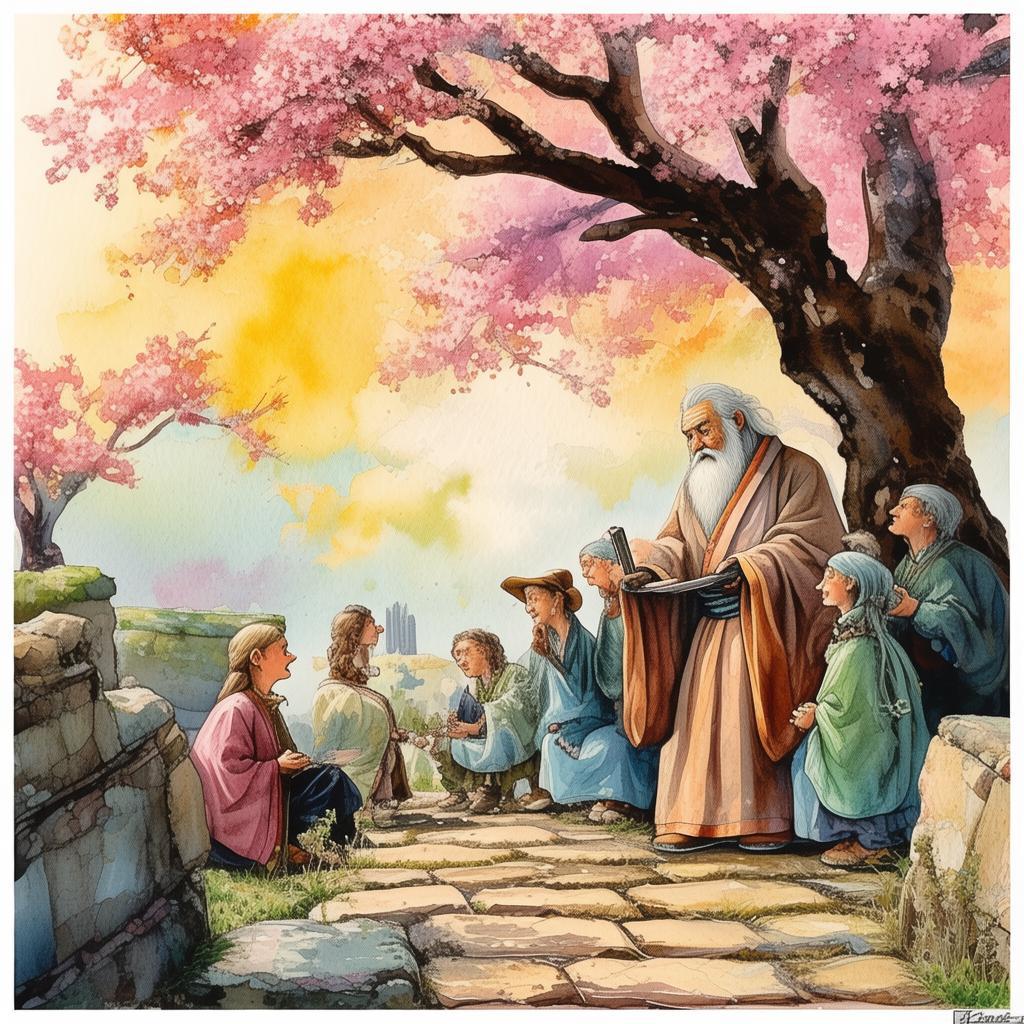The Monk's Meditation: A Proverbial Enlightenment
In the serene mountains of ancient China, there stood a humble temple known as the Jade Pagoda. It was a place of quiet reflection and spiritual contemplation, where the monk known as Zenji lived his days in solitude. Zenji had spent years meditating, seeking the enlightenment that would free him from the cycle of samsara and lead him to Nirvana. His quest was not for personal gain but for the betterment of the world.
One crisp autumn morning, as the sun cast a golden glow over the valley, Zenji began his daily meditation beneath the ancient bodhi tree. He sat cross-legged, eyes closed, and focused his mind on the rhythm of his breath. He tried to clear his mind of all thoughts, to be one with the universe, but distractions still crept in. The rustling leaves, the distant sound of a stream, and the occasional chirp of a bird all seemed to compete for his attention.
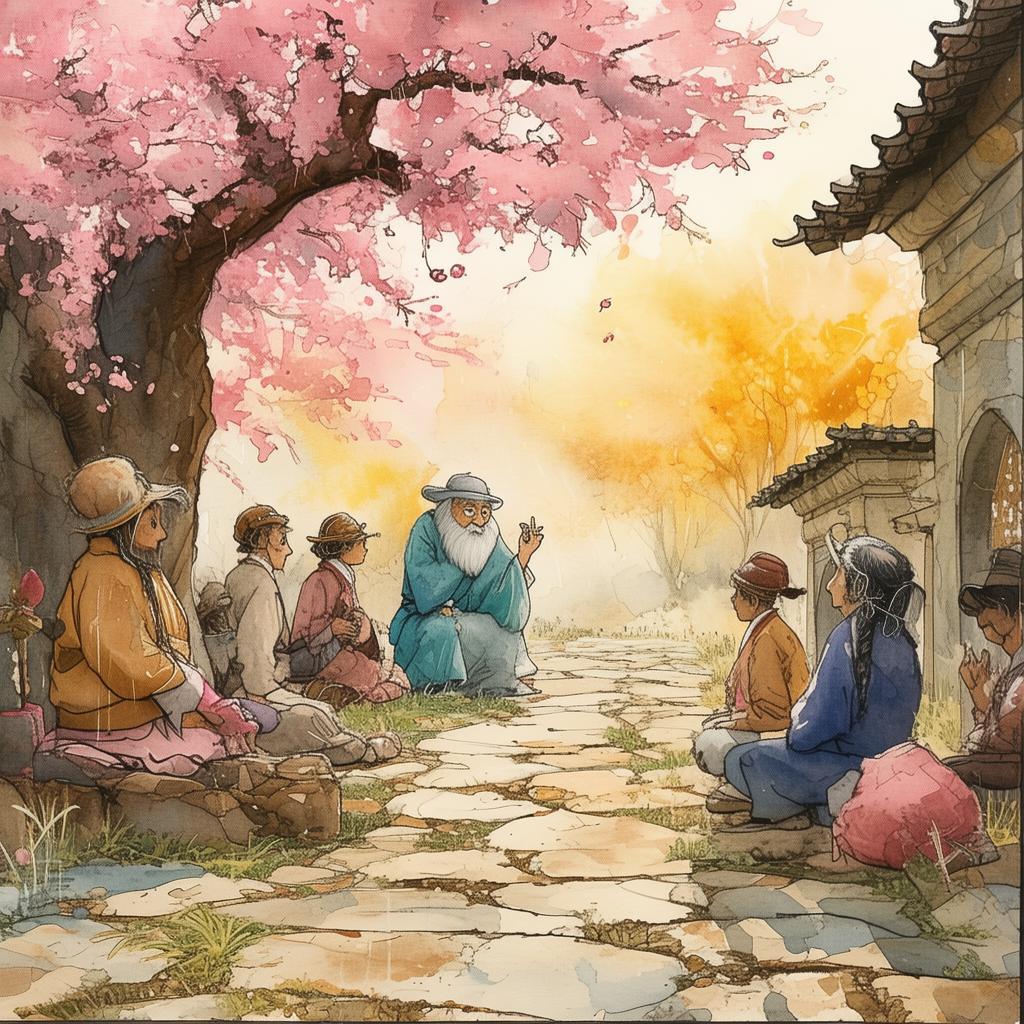
Zenji knew that meditation was not about achieving a state of perfect silence but about learning to observe without judgment. He saw that his mind was like a turbulent river, constantly shifting and changing. If he could learn to remain calm and steady in the face of his thoughts, he could harness their energy and find peace.
As he meditated, a feeling of warmth spread through him, and he felt as though he was floating on a cloud. In that moment, he had a revelation that seemed to come from beyond his own mind. It was a proverbial enlightenment, a profound truth that he had been seeking all along.
The proverb he saw was "A still mind is a fertile ground." Zenji realized that his mind had been fertile ground for chaos and confusion, but now, with his newfound clarity, he could cultivate a garden of peace and tranquility. He understood that true meditation was not just about sitting in silence but about being present in every moment, no matter what was happening around him.
With this new understanding, Zenji's meditation practice changed. He began to see the world with fresh eyes, appreciating the beauty and simplicity of life. He noticed the subtle nuances of the natural world and felt a deep connection to all living things. His heart opened, and he began to see the suffering of others, feeling it as his own.
One day, while meditating by the river, Zenji witnessed a young boy fall into the water. Without hesitation, he leaped in and saved the boy's life. The villagers were amazed to see the monk's quick response and were touched by his selfless act. They began to see Zenji not just as a monk but as a wise and compassionate individual who could be relied upon in times of need.
Word of Zenji's enlightenment spread throughout the village, and people from all around came to seek his guidance. He taught them the art of meditation, showing them that a still mind could bring peace and clarity to their lives. He shared his revelation, the proverb "A still mind is a fertile ground," and encouraged them to cultivate their inner gardens.
The village changed for the better. People began to resolve conflicts without resorting to violence. They showed more kindness and compassion to one another. The children played in the streets without fear, and the elders were treated with respect and dignity.
Zenji's life of solitude had brought him to a place where he could help others find their own paths to enlightenment. His meditation had not only changed his own life but had transformed the entire village.
As the years passed, Zenji continued to meditate and to teach, but his heart remained open to the world. He saw that the journey to enlightenment was not just a personal quest but a shared journey, one that could be taken by anyone who was willing to look within and find the stillness that lay beneath the surface of their everyday lives.
And so, the village thrived, and Zenji's story became a legend, a tale of a monk's meditation that brought about a proverbial enlightenment, changing the lives of many and reminding them all that a still mind is indeed a fertile ground for a peaceful and harmonious world.
✨ Original Statement ✨
All articles published on this website (including but not limited to text, images, videos, and other content) are original or authorized for reposting and are protected by relevant laws. Without the explicit written permission of this website, no individual or organization may copy, modify, repost, or use the content for commercial purposes.
If you need to quote or cooperate, please contact this site for authorization. We reserve the right to pursue legal responsibility for any unauthorized use.
Hereby declared.
